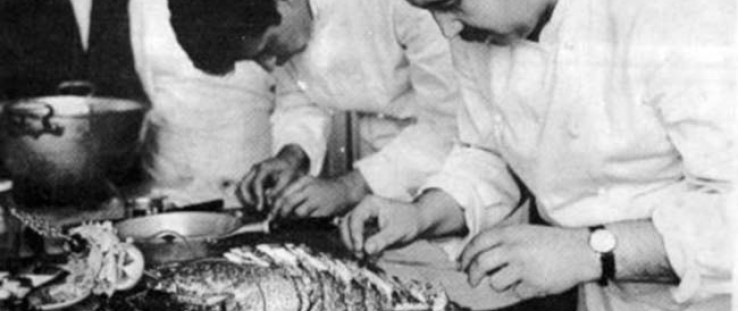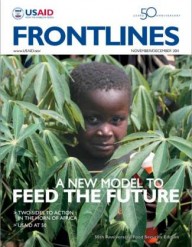 USAID’s support for tourism training in Turkey was widely reported.
PHOTO COURTESY OF USAID
USAID’s support for tourism training in Turkey was widely reported.
PHOTO COURTESY OF USAID
 USAID’s support for tourism training in Turkey was widely reported.
PHOTO COURTESY OF USAID
USAID’s support for tourism training in Turkey was widely reported.
PHOTO COURTESY OF USAID
Turkey is a development success story. Since the 1950s, by most measures, Turkey’s progress across political, economic, and social spectrums has been remarkable, and it is now considered an advanced developing country. Many may not realize that USAID and its predecessor organization, the International Cooperation Administration (ICA), had a role in this success, as they helped Turkey lay the groundwork for many of its economic achievements.
I spent nine years as a child in Turkey when my father, Anthony R. Lanza, was posted there with ICA. In the 1950s, Americans were still a novelty in Turkey, but that didn’t stop the Turks from treating us well, and we were welcomed with warm hospitality everywhere we went.
My father would often take me on visits to his projects where I would meet his students, other professors, and government officials. One of my earliest childhood memories is of walking with him on the campus of Ankara University, listening intently as he gently explained that he was helping create a teacher’s education program to “teach teachers how to teach.”
My 5-year-old brain was intrigued. If I could trace the origin of my interest in development to a single moment, that would be it; I was hooked.
In the 1950s, Turkey was not a popular tourist destination. Records show that only 29,000 tourists visited Turkey in 1950. Despite its abundance of natural beauty, history, and sun and sand destinations, tourism was not a significant economic sector. While tourism’s potential to contribute to economic growth was generally understood in the halls of Turkish ministries, and among public and private leaders, there were no plans to stimulate tourism as a source of employment and national income. Turkey’s private sector needed a skilled workforce to compete, and tourism was no exception.
By the late 1950s, the failure to attract large numbers of tourists to Turkey was attributed to the lack of hotels that met acceptable standards for international travelers. In 1959, my father approached the Ministry of Education—the Ministry of Tourism had not yet been created?with a concept for expanding Turkey’s nascent tourism industry.
The proposal centered on the establishment of a Hotel Management and Hospitality School, the first of its kind in Turkey. Under my father’s leadership, a curriculum was developed, textbooks were written and translated into Turkish, and a building was identified to house the school.
In 1961, Turkey’s first hotel school, Ankara Otelcili Okul, opened in Ankara. The three-year program focused on four main subjects: restaurant services, housekeeping, front office management, and kitchen.
Competition for admission to the school was steep—only high school graduates who successfully passed examinations and succeeded in a series of interviews were considered for admission. The initial class consisted of 44 students. By 1964, the school had 100 full-time students who were provided with room and board under the USAID program.
Hotel school graduates were in high demand, with Turkish hotels hiring 100 percent of the graduating students. By 1970, tourist arrivals were up 366 percent from 1963, to more than 724,000 arrivals. Revenues, too, increased in that same period by more than 700 percent. Turkey’s tourism industry began to grow rapidly. In 2010, over 28 million tourists visited the country, bringing with them revenues of nearly $21 billion.
The Ankara Hotel School continues in operation today with more than 700 full-time students enrolled in the same basic curriculum that was developed 50 years ago by my father and his staff. There are thousands of students in the 109 other Ministry of Education hotel and tourism training schools that have been subsequently established over the years in major cities and towns around Turkey, as well as in the 10 private schools and two private culinary academies. All of these can trace their roots to USAID’s original Hotel School Project.
When my father passed away in 1995, the Turkish Embassy, having been advised by the Education Ministry in Ankara, sent their public affairs attaché to his memorial service at Arlington Cemetery. The Turkish people have not forgotten America’s involvement in their progress, and continue to recognize and appreciate USAID’s contribution to their country’s development.









Comment
Make a general inquiry or suggest an improvement.